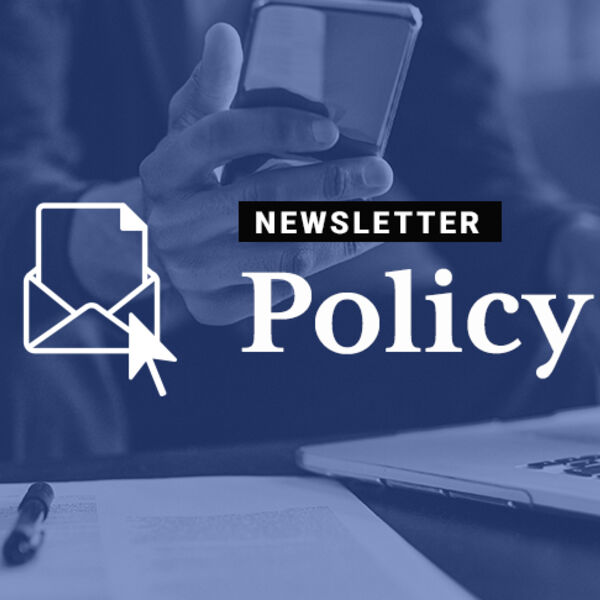
Policy Updates: Hill Happenings and Administration Activities
Hill Happenings
House Appropriations Subcommittees Release First Funding Bills
Lawmakers on appropriations subcommittees are advancing the first spending bills for Fiscal Year 2026 (FY2026). On July 14, the House Appropriations Subcommittee on Transportation, Housing and Urban Development, and Related Agencies marked up their spending bill, which included level-funding for the Department of Housing and Urban Development Housing Opportunities for Persons With AIDS (HOPWA) Program. No bill text has been released for the Subcommittee on Labor, Health and Human Services, Education, and Related Agencies (LHHS) bills in either chamber, but the House Appropriations Committee scheduled a subcommittee markup on July 21 and a full committee markup on July 24.
Additionally, Senate Republicans are whipping support for the President’s rescission request to Congress, which aims to claw back Congressionally approved funding for several programs, including the HIV foreign assistance program, PEPFAR (President’s Emergency Plan for AIDS Relief). The House passed the rescissions package on June 12 and Congressional Republicans must approve the measure by July 18. Democrats panned the rescissions request, and Senate Minority Leader Schumer (D-NY) urged Republicans to uphold the bipartisan integrity of the Congressional appropriations process and Congress’s power of the purse.
Senate HELP Subcommittee Tees up Confirmation Vote on Full Senate Floor for CDC Director Nominee
On July 9, the Senate Committee on Health, Education, Labor, and Pensions (HELP) advanced the nomination of Susan Monarez for Director of the Centers for Disease Control and Prevention (CDC), teeing up a final Senate confirmation vote that has not yet been scheduled. The committee voted along party lines, with no Democrat endorsing her nomination due to concerns over her views on immunization policy and potential commitment to the Make America Healthy Again (MAHA) initiative. If confirmed, Monarez would play a critical role in federal vaccine policy development, including providing the final endorsement required to fully implement recommendations put forward by the CDC Advisory Committee for Immunization Practices (ACIP), whose membership was recently overhauled by Department of Health and Human Services (HHS) Secretary Kennedy. Monarez is the first-ever nominee to undergo the Senate confirmation process for CDC Director, which became a Senate-confirmed role starting in 2025.
Administration Activities
Newly Appointed CDC Immunization Committee Targets Hepatitis B Vaccine
On June 25-26, the CDC Advisory Committee on Immunization Practices (ACIP) held its first meeting following the HHS Secretary’s overhaul of committee membership. On June 9, Secretary Kennedy ousted all 17 ACIP members and appointed 8 new members on June 11, with one member abruptly resigning a day before the June 25 meeting. During the meeting, the committee questioned whether universal infant hepatitis B virus (HBV) vaccination recommendations are necessary despite their role in achieving major reductions in pediatric rates of HBV. Additionally, Secretary Kennedy alleged on June 30 that the hepatitis B vaccine increases the risk of autism, signaling a likely focus on reshaping HBV immunization practices during his tenure at HHS. Public health advocates characterized the committee changes as a political take-over of the influential committee, whose recommendations determine which vaccines are provided at no consumer cost, and urged the Administration to uphold evidence-based policy for HBV immunization guidelines.
HHS Moves to Bar Undocumented Immigrants from Accessing Certain Federal Benefits Programs
On July 10, HHS formally rescinded a long-standing interpretation of the Personal Responsibility and Work Opportunity Reconciliation Act of 1996 (PRWORA) that permitted non-citizens from accessing certain federal benefits programs. The Administration’s new interpretation of “federal public benefits” language in the PRWORA revokes exemptions for immigration-related program eligibility requirements and establishes new requirements for programs across HHS that previously did not require verification of citizenship status. HHS claims that the policy is necessary to ensure that federal benefits are administered with transparency and legal integrity. HHS is accepting comments on the new policy through August 13.
News Bulletin
Vaccine policy in the U.S. is entering uncharted territory
“Vaccines are facing new challenges from an unexpected quarter: the people who set vaccine policy for the United States. Many people have never heard of the Advisory Committee on Immunization Practices, but its work keeps preventable diseases, from polio to measles to COVID-19, in check… But from the opening moments of the June 25 and June 26 ACIP meeting, it was clear that this was not business as usual. Instead, debunked science, an apparent nonchalance about preventable deaths and confusion over basic testing procedures often took center stage.”
Senate GOP faces ‘gut check time’ on axing global HIV program
“Senate Republicans remain wary of eliminating the popular and successful global HIV/AIDS program PEPFAR, as they face down a July 18 deadline to vote on President Trump’s first tranche of rescissions requests. In his rescissions request to Congress last month, Trump asked that $900 million budgeted for the President’s Emergency Plan for AIDS Relief (PEPFAR) be cancelled. The House has already passed Trump’s rescissions, and now the Senate must make the final move.”
Harm Reduction Vending Machines Work, Says 30 Years of Research
“From New York City to rural Oklahoma and across the world, harm reduction vending machines are gaining popularity. They offer a convenient way to access supplies like syringes, pipes, naloxone, condoms and even safe-supply opioids. For those who feel uncomfortable sharing personal information or interacting with program staff, “vending” machines—despite the moniker, they’re typically free—provide an anonymous and contactless alternative.”